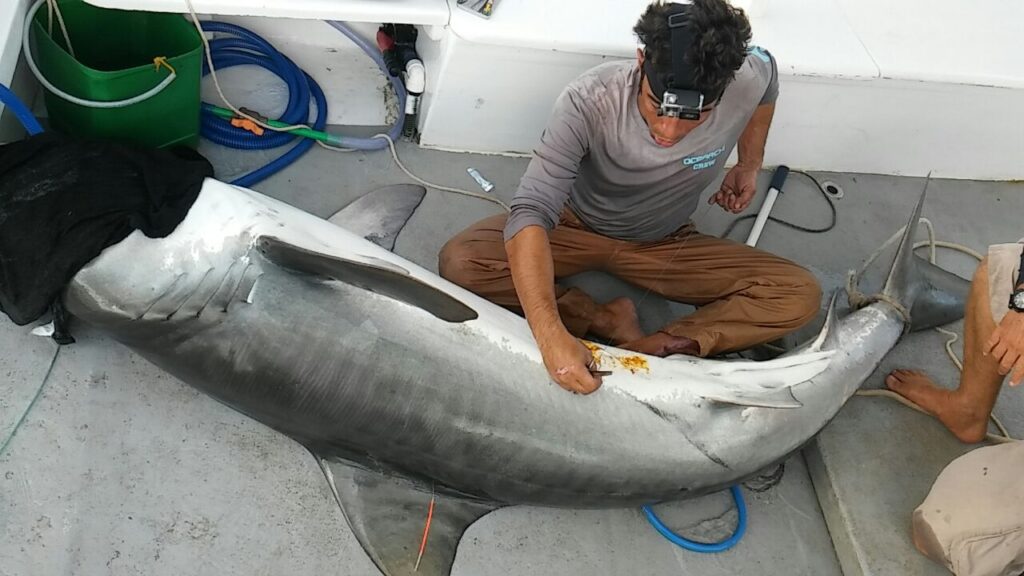A study carried out by André S. Afonso, researcher at the Department of Life Sciences (DCV) of the Faculty of Science and Technology of the University of Coimbra (FCTUC), during the confinement caused by the covid-19 pandemic, concluded that the shark species lemon changed its behavior due to the exclusion of the human component. The details of the investigation are published in the scientific journal Ocean & Coastal Management.
As top predators, many sharks play a crucial role in balancing marine ecosystems. However, these animals have experienced serious population declines. Overfishing is arguably the main threat to shark populations, but little is known about the impact of non-extractive human pressure.
Thus, the scientific article “Humans influence shark behavior: Evidence from the COVID-19 lockdown” shows the effect of varied human presence on shark behavior in an island marine reserve.
«In 2020, humans were practically absent from Fernando de Noronha (FEN), in Brazil, during a period of confinement of 211 days caused by the pandemic. A local shark tracking program produced almost 280 acoustic detections in coastal waters from 2016 to 2021 and it was possible to verify that the lemon shark, a native of the area under analysis, showed a clear response to the absence of humans», reveals André Afonso , author of the study.
«These animals actually started to use coastal areas more frequently and to adopt regimes coinciding with human regimes more frequently, during confinement», describes the biologist, adding that, after this period, the species recovered its previous patterns due to people's return.
According to the FCTUC researcher, this species naturally behaves more nocturnally. However, with confinement and no human presence during the day, lemon sharks began to circulate in the spaces most used by people during the day. “What we observed with this trend is that perhaps daytime is also important for these animals, but they probably feel more inhibited by human presence,” he believes.
The DCV researcher also considers that this “study demonstrates that non-extractive human disturbance can induce significant changes in the way marine predators exploit crucial habitats to carry out trophic, reproductive and ontogenetic functions. Determining the ecological impacts of human development on the marine environment must therefore consider the latent responses of megafauna to the anthropogenic landscape produced by an ever-increasing coastal population».
“The designation of marine areas of human exclusion could prove to be the only solution to providing shark populations with suitable habitats to optimize their resilience to human pressure”, he concludes.
The scientific article is available for consultation here: https://www.sciencedirect.com/science/article/pii/S0964569123004908.



















Comments